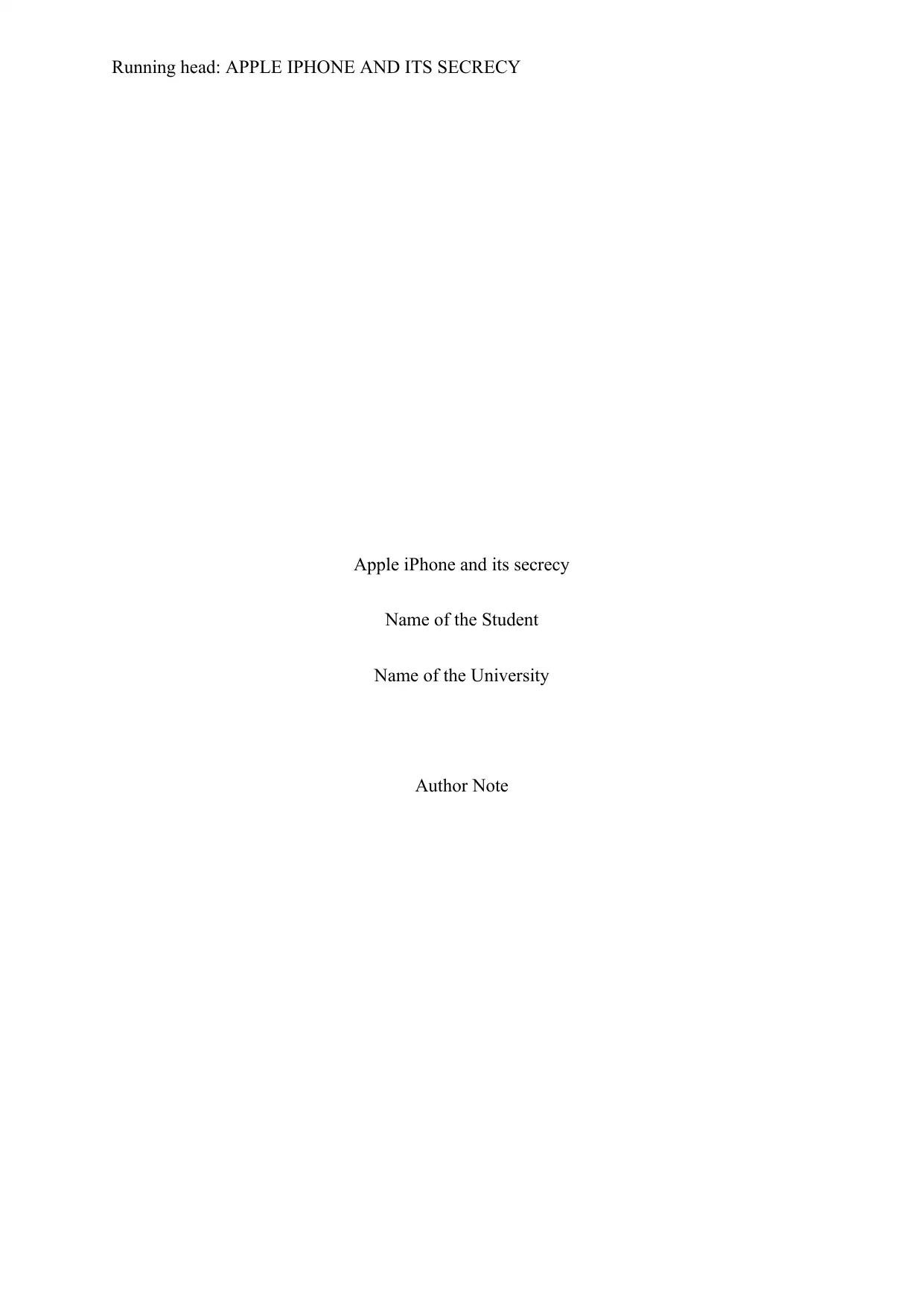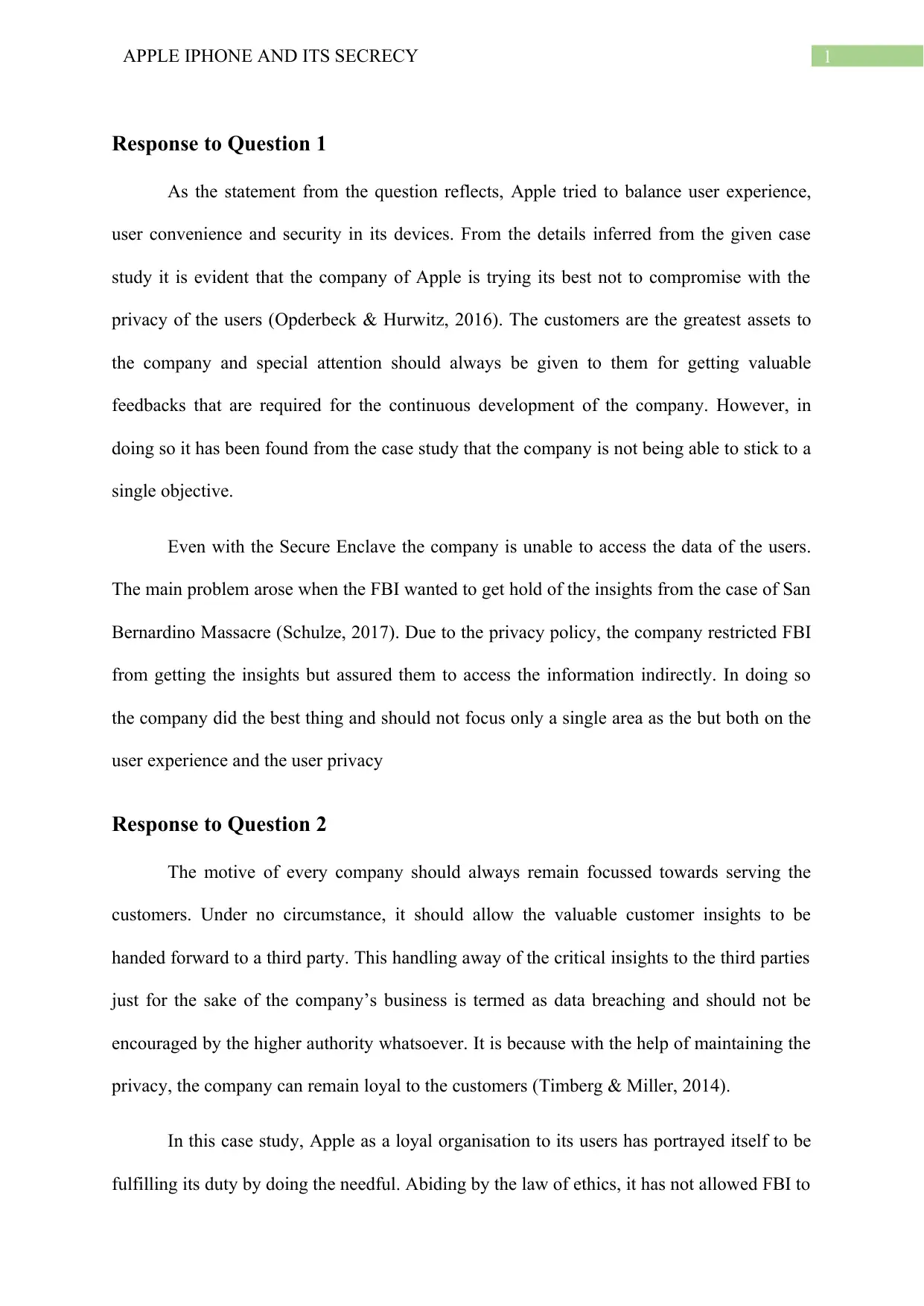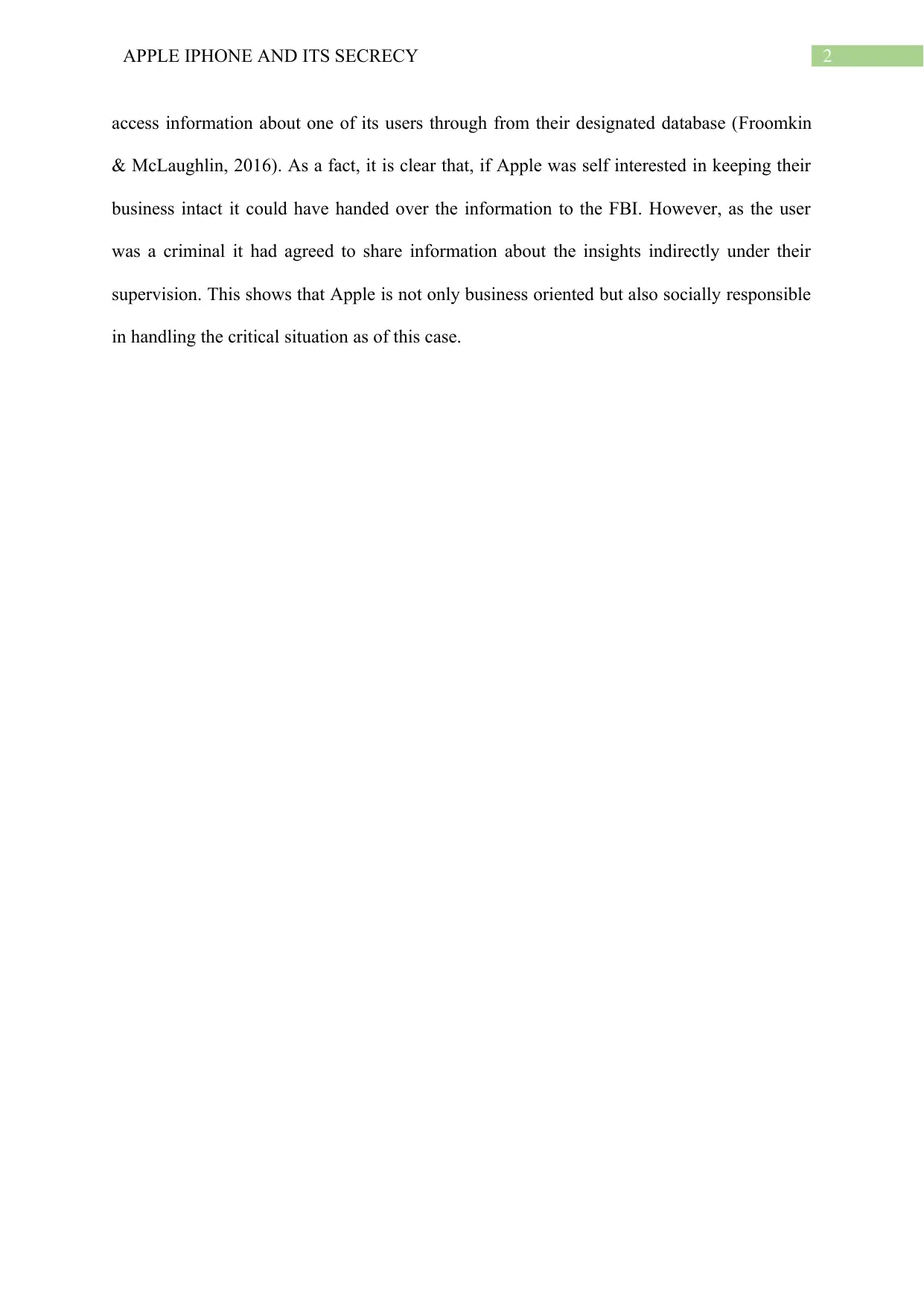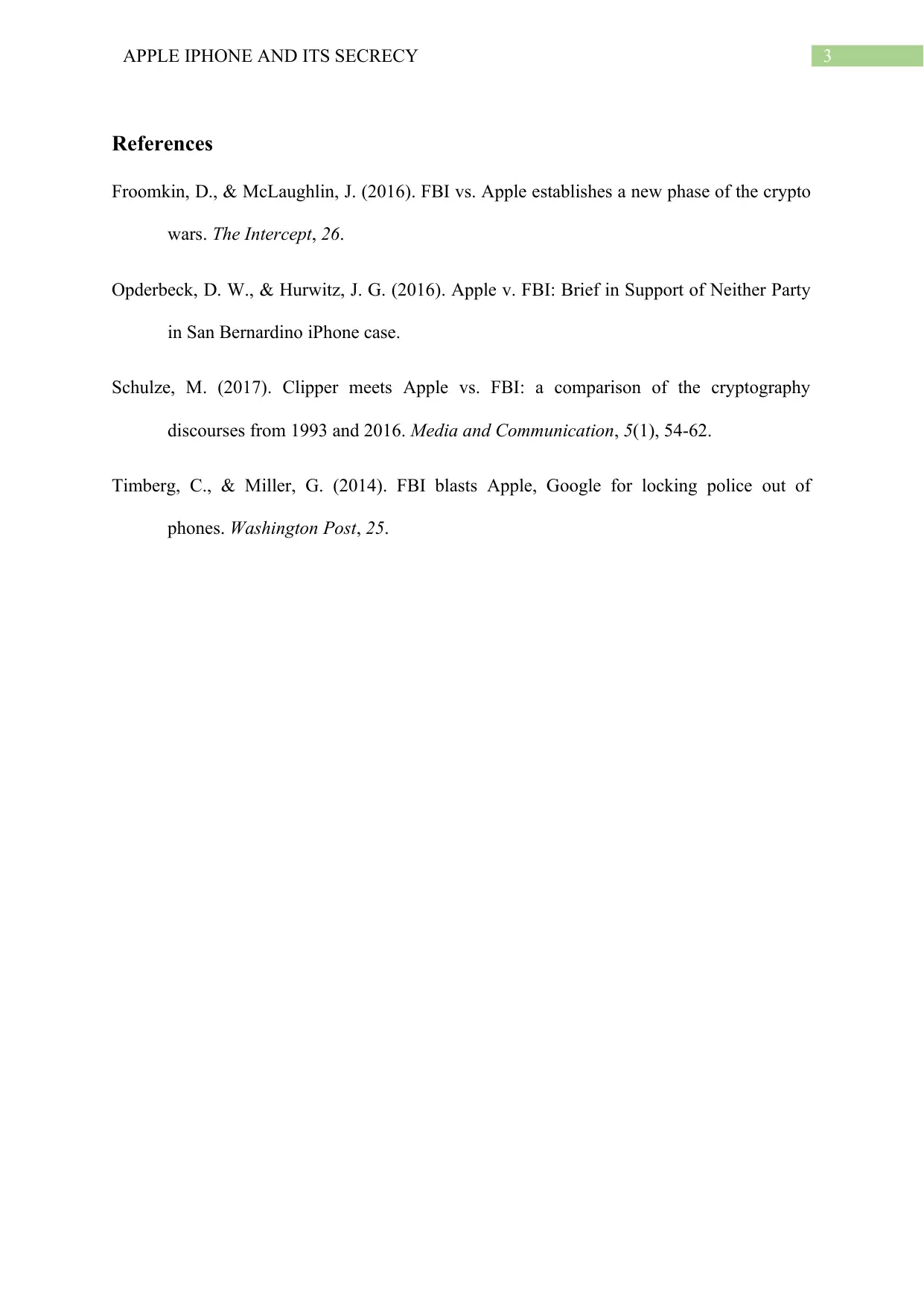University Assignment: Apple iPhone's Approach to Security and Privacy
VerifiedAdded on 2023/06/03
|4
|623
|462
Case Study
AI Summary
This case study examines Apple's approach to balancing user experience, convenience, and security in its iPhones, particularly in the context of the San Bernardino Massacre and the FBI's request for user data. The study highlights Apple's efforts to protect user privacy, even when faced with governmental demands. It analyzes the company's use of Secure Enclave and its stance on not compromising user data. The assignment explores the ethical and business implications of Apple's decisions, emphasizing the importance of customer loyalty and responsible data handling. The case study references legal and ethical considerations, demonstrating Apple's commitment to user privacy while navigating complex situations. The provided references support the analysis, offering insights into the ongoing debate about data security and user rights.
1 out of 4











![[object Object]](/_next/static/media/star-bottom.7253800d.svg)